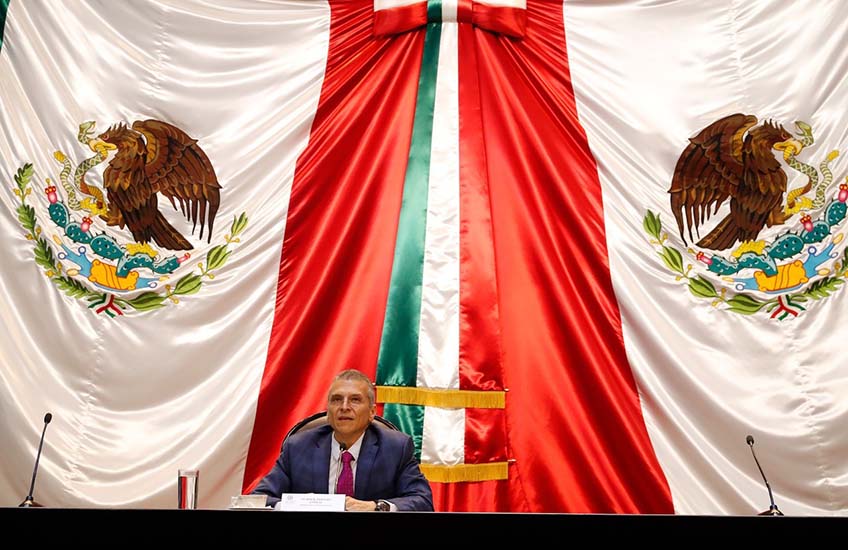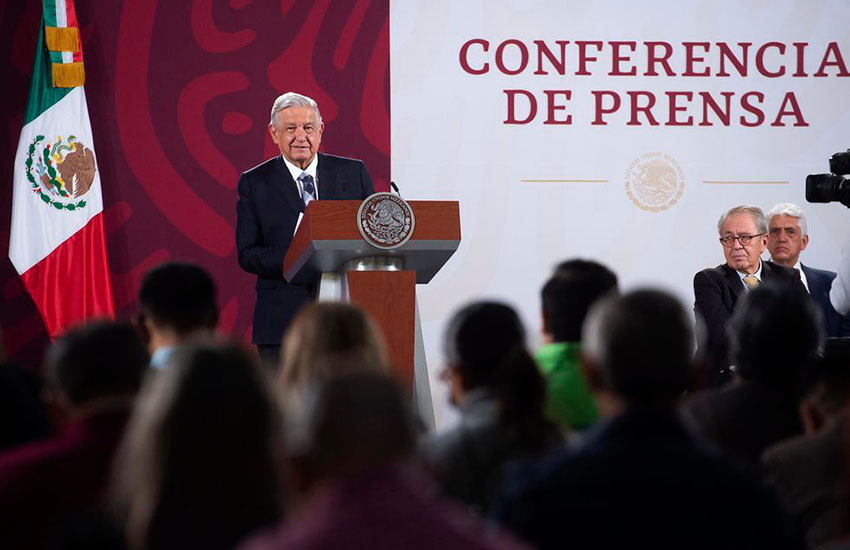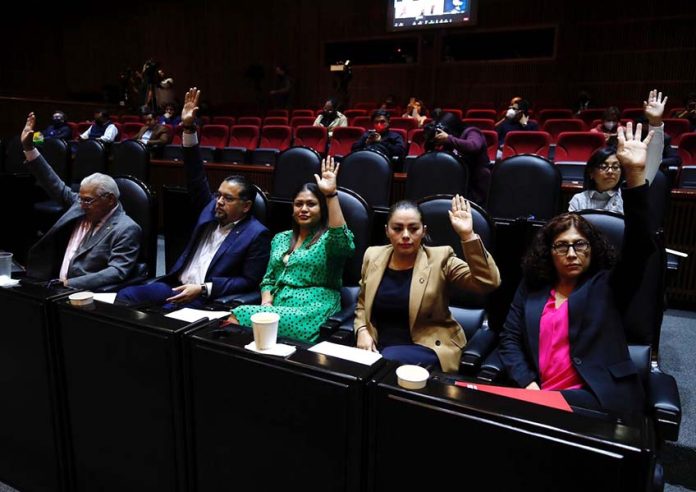The energy committee of the lower house of Congress has approved a bill proposing the elimination of daylight saving time in most of the country, bringing the practice of changing clocks twice a year one step closer to obsolescence.
Sent to Congress by President López Obrador in July, the bill was supported by deputies with the ruling Morena party and its allies at a vote held Monday. A total of 22 energy committee members voted in favor of the proposal, 11 abstained and just one opposed it.
The bill – which proposes a new Time Zones Law – will now be considered by all 500 deputies, with debate and a vote slated to be held Wednesday. If it passes the Chamber of Deputies, the bill will face a vote in the Senate.
The proposal – which would allow northern border municipalities to continue to observe daylight saving time in order to stay in sync with the U.S. states they adjoin – only requires a simple majority to pass the federal legislature, meaning that it is likely to become law. With the support of its allies, Morena commands a majority in both the lower and upper houses.

Members of the energy committee who voted in favor of the elimination of daylight saving time argued that the savings generated by the time change have been minimal while the impact on people’s physical and mental health has been significant.
López Obrador, a longtime critic of daylight saving time – first introduced in Mexico in 1996 by then-president Ernesto Zedillo – said in June that a study completed by the Energy Ministry in conjunction with the Health Ministry and the Federal Electricity Commission concluded that daylight saving time generates savings of about 1 billion pesos (US $49.1 million) a year across Mexico.
“The conclusion is that the damage to health is greater than the importance of economic savings,” he said.
Reginaldo Sandoval, a deputy with the Labor Party, recalled Monday that the argument for establishing daylight saving time in 1996 was mainly an economic one based on the expected reduction in electricity use.
“Nothing could be further from the truth because the [electricity] consumption saving is marginal,” he said. “The decision [to introduce daylight saving time] was political with a very strong ideological weight because we were at the peak time of the neoliberal model, when they even wanted to privatize time.”
Morena Deputy Joaquín Zebadúa asserted that the introduction of daylight saving time hasn’t led to lower power bills for households as promised. He also said that some communities in his home state of Chiapas don’t observe daylight saving time because they allow “God’s time” to prevail.
“Summer time [daylight saving time] is an unjust norm, … there is no saving [generated],” Zebadúa added.
Similarly, Energy Minister Rocío Nahle said earlier this year that daylight saving time has made no positive impact on family expenditure. “According to scientific evidence, there are no significant changes in sunlight in countries near the tropics. Therefore there is no justification,” she said.

Lidia Pérez Bárcenas, another Morena deputy, said Monday that the introduction of daylight saving time in Mexico has caused an increase in health problems such as heart disease and mental health issues. Health Minister Jorge Alcocer has previously cited numerous health issues associated with the twice-yearly time change, including heart attacks, “especially in the first week after it is implemented.”
“Humans have biological clocks that are tasked with regulating the functions of different proteins and organs. … The time change alters the time we’re exposed to the sun and throws our biological clocks off balance,” Alcocer said in early July.
Morena Deputy Judith Celina Tánori Córdova, secretary of the Chamber of Deputies’ energy committee, made similar remarks on Monday.
The Interior Ministry conducted a telephone poll earlier this year that found 71% support for the elimination of daylight saving time, while López Obrador has stressed that “people don’t want the time change” and predicted that Congress will pass his bill.
The United States is also considering doing away with twice-yearly time changes, but in contrast to Mexico, the proposal there is to make daylight saving time permanent. The U.S. Senate passed a bill to that end in March, but it still requires approval from the House of Representatives before it can be sent to President Joe Biden to be signed into law. The U.S. state of Arizona has not observed daylight saving time since 1968.
The Canadian provinces of British Columbia and Ontario have also passed measures to move to permanent daylight saving time but have been waiting to implement changes in order to coordinate with border states in the U.S. and/or other Canadian provinces. Many areas of Saskatchewan already do not observe daylight saving time, and the Yukon voted in 2020 to make daylight saving time permanent.
With reports from El Financiero, La Jornada and Excélsior
